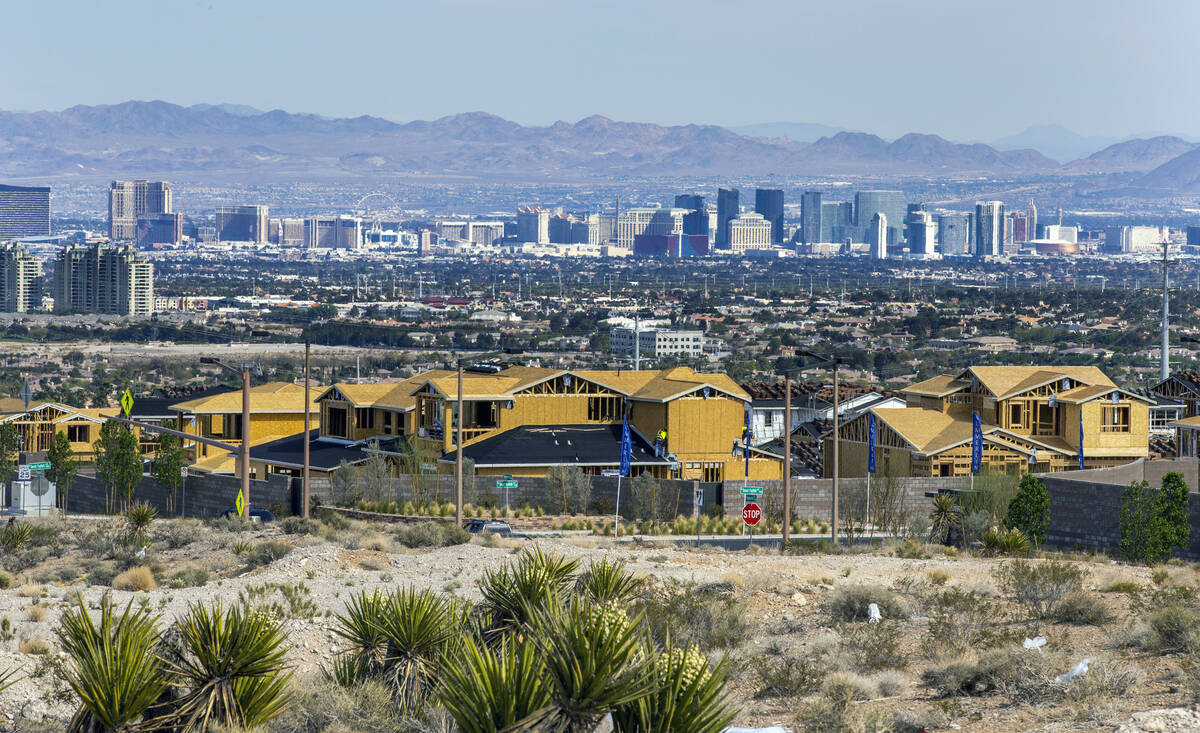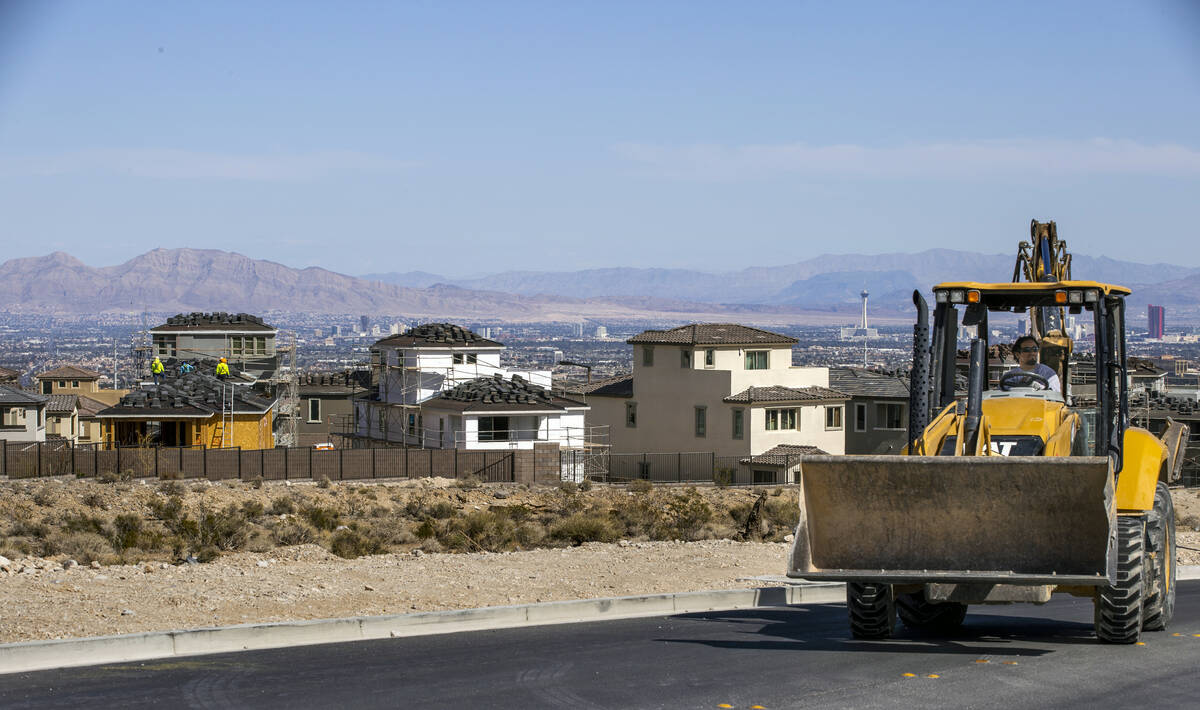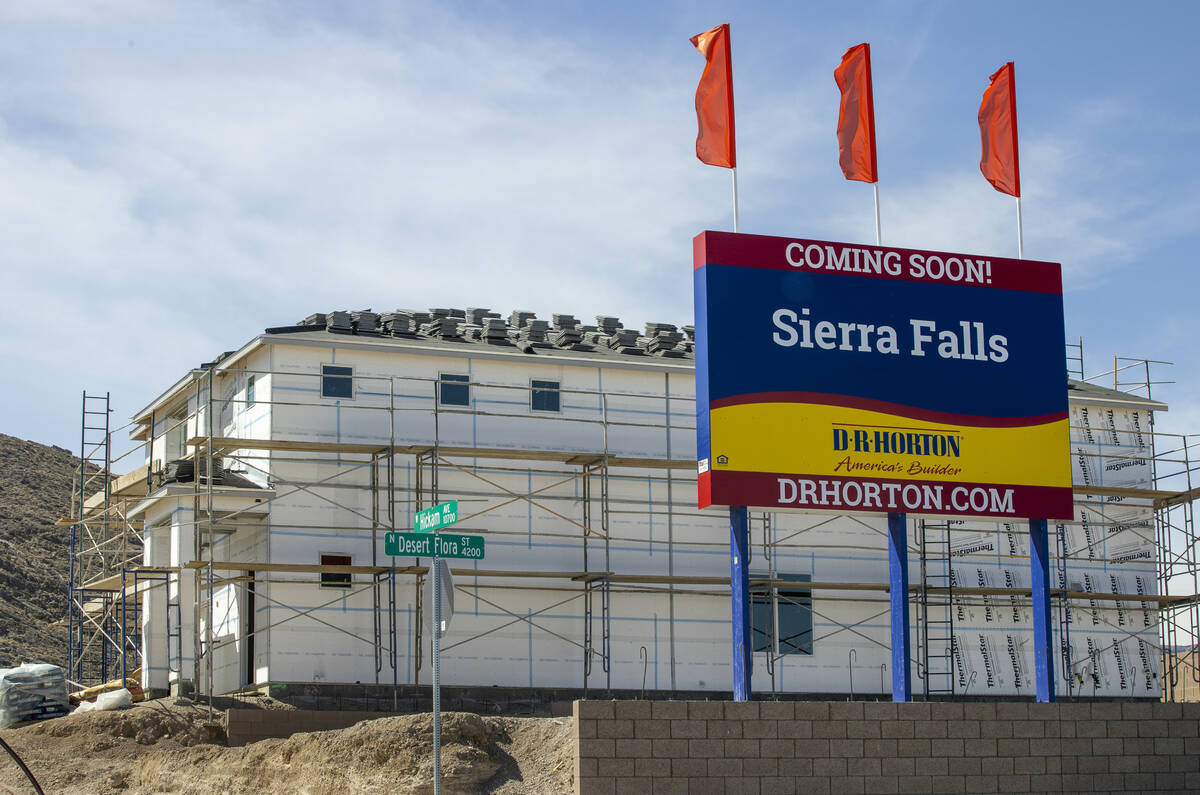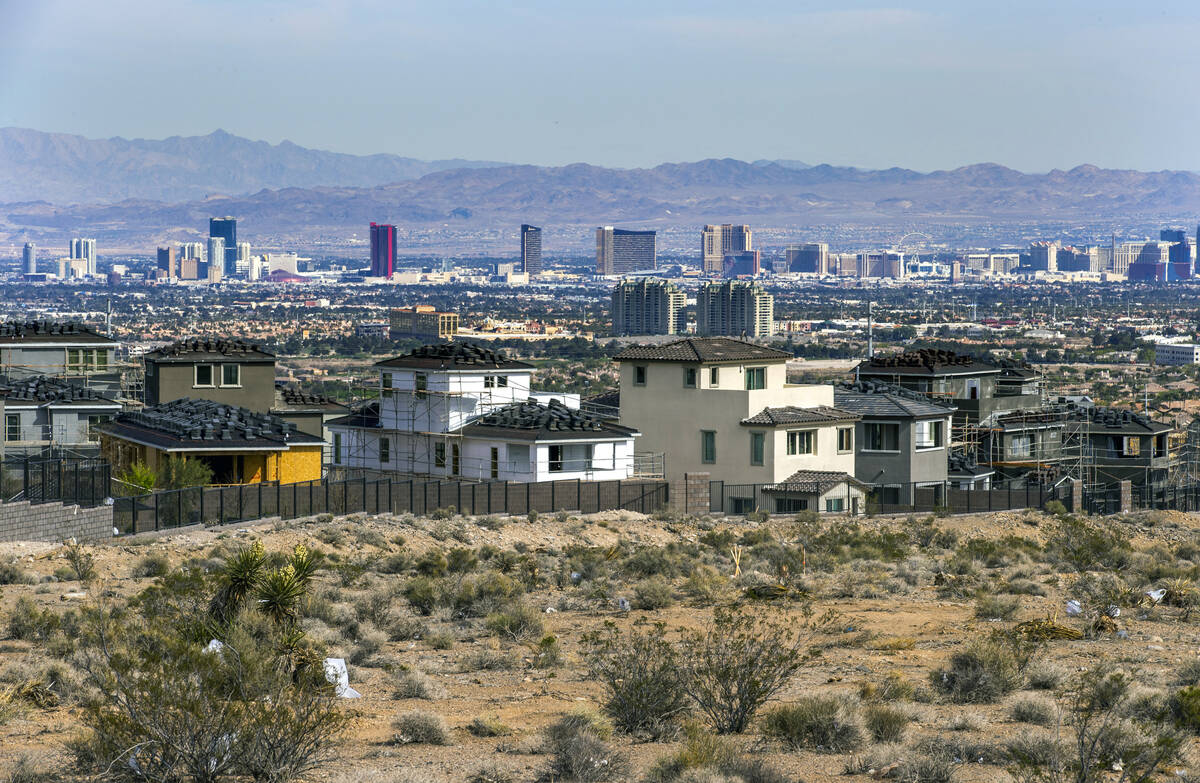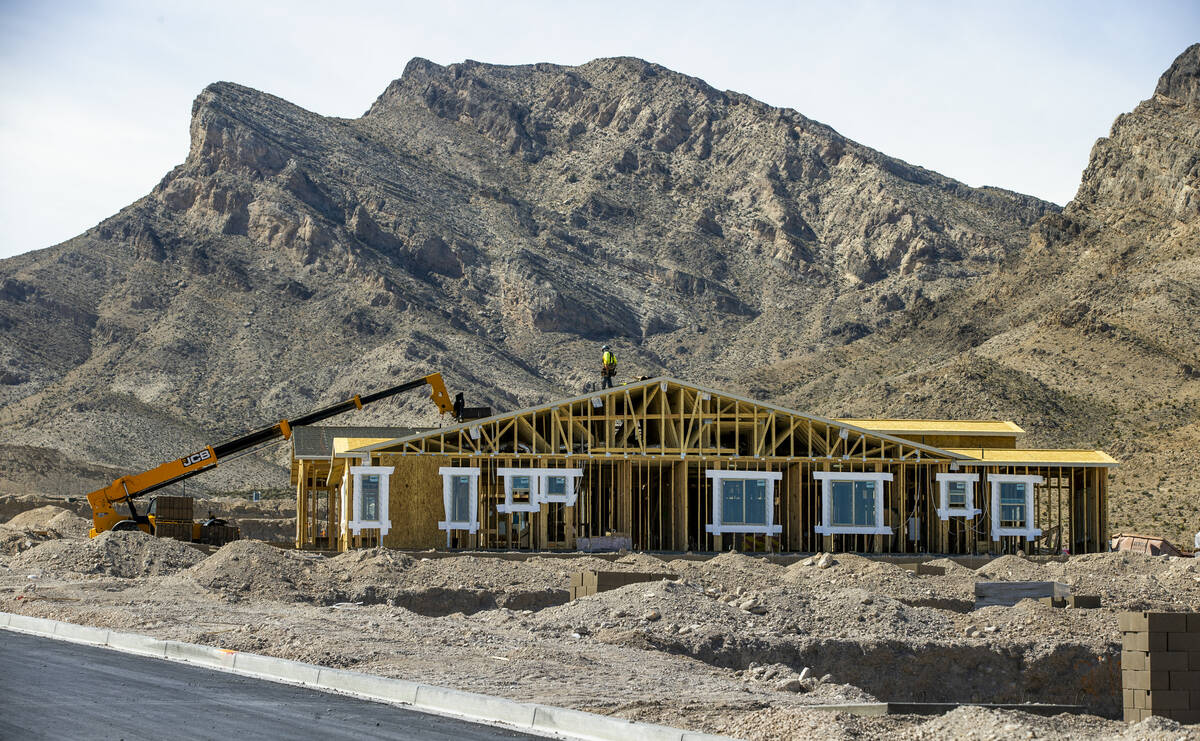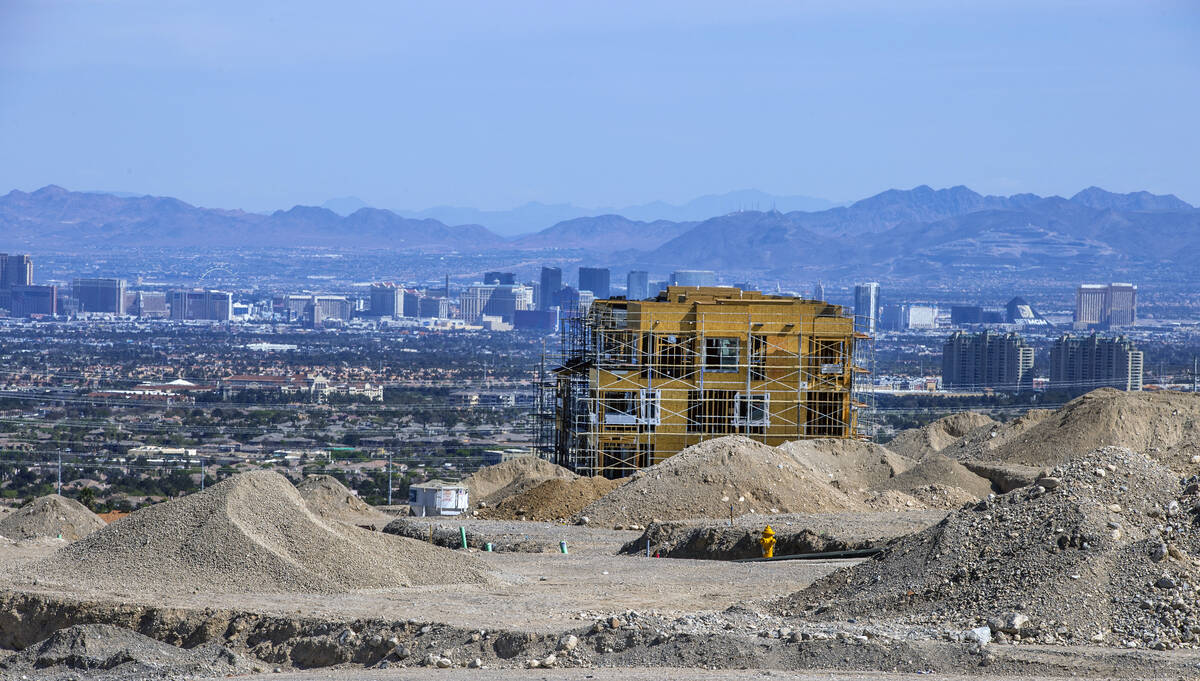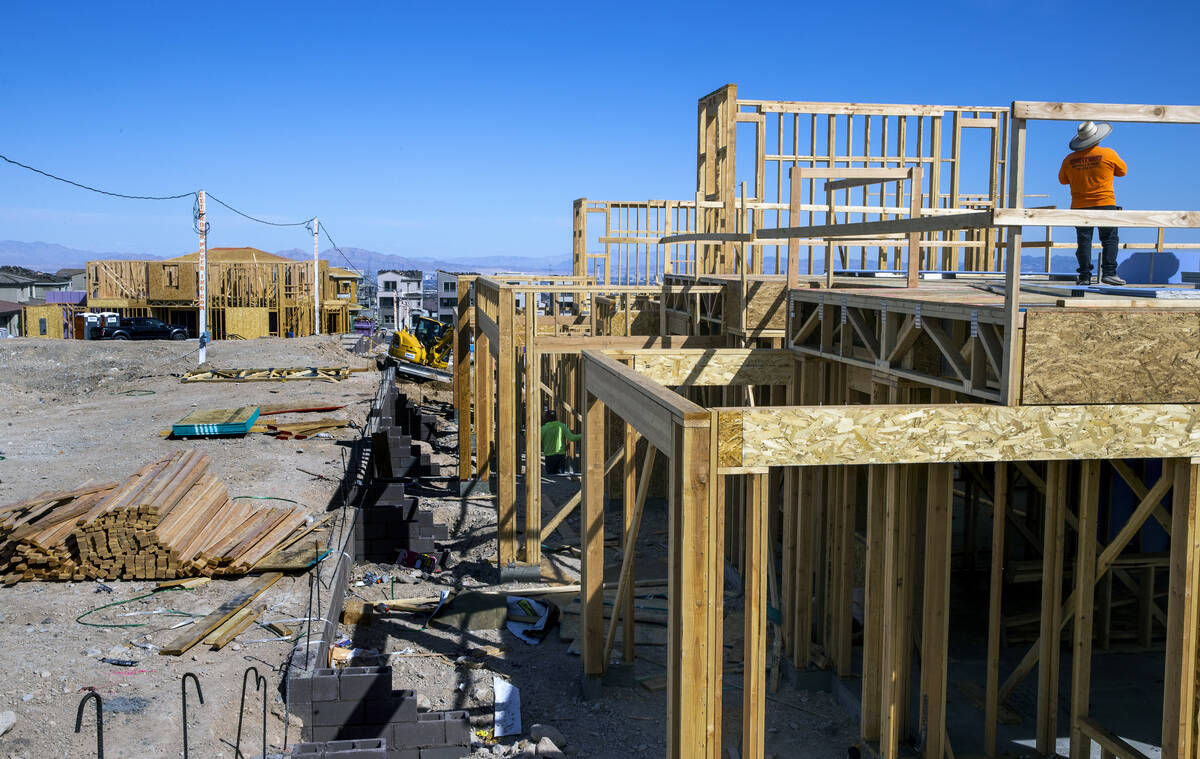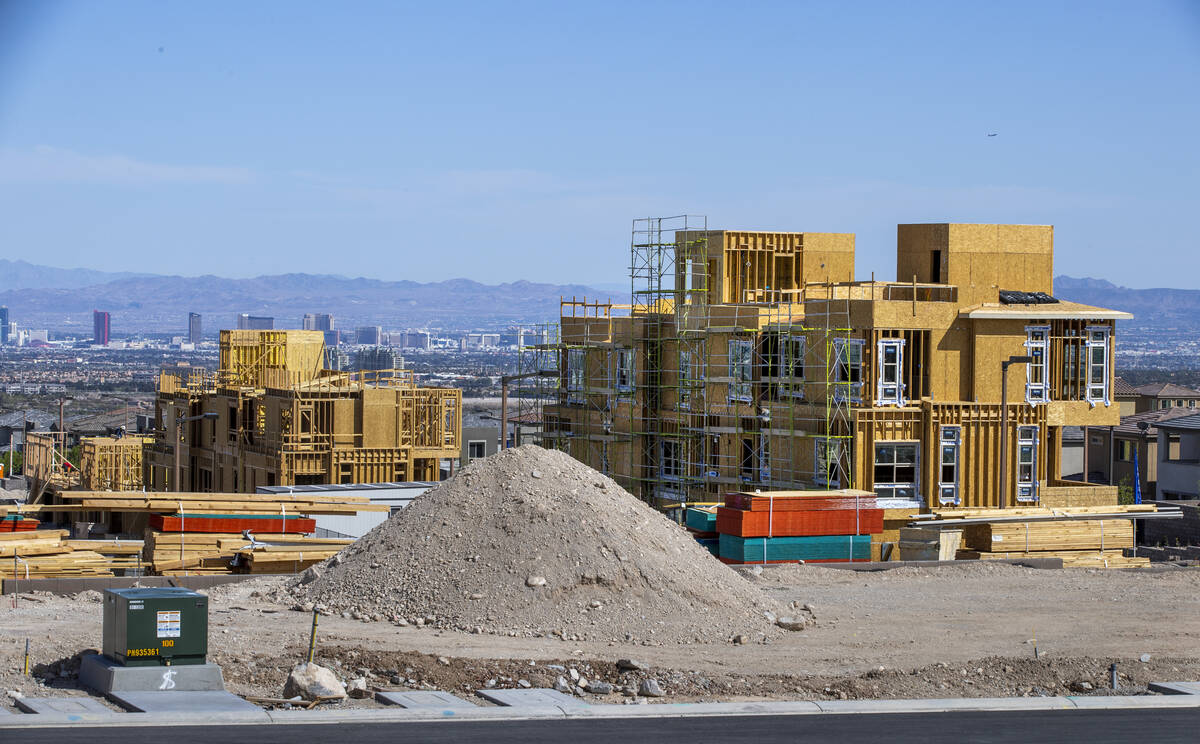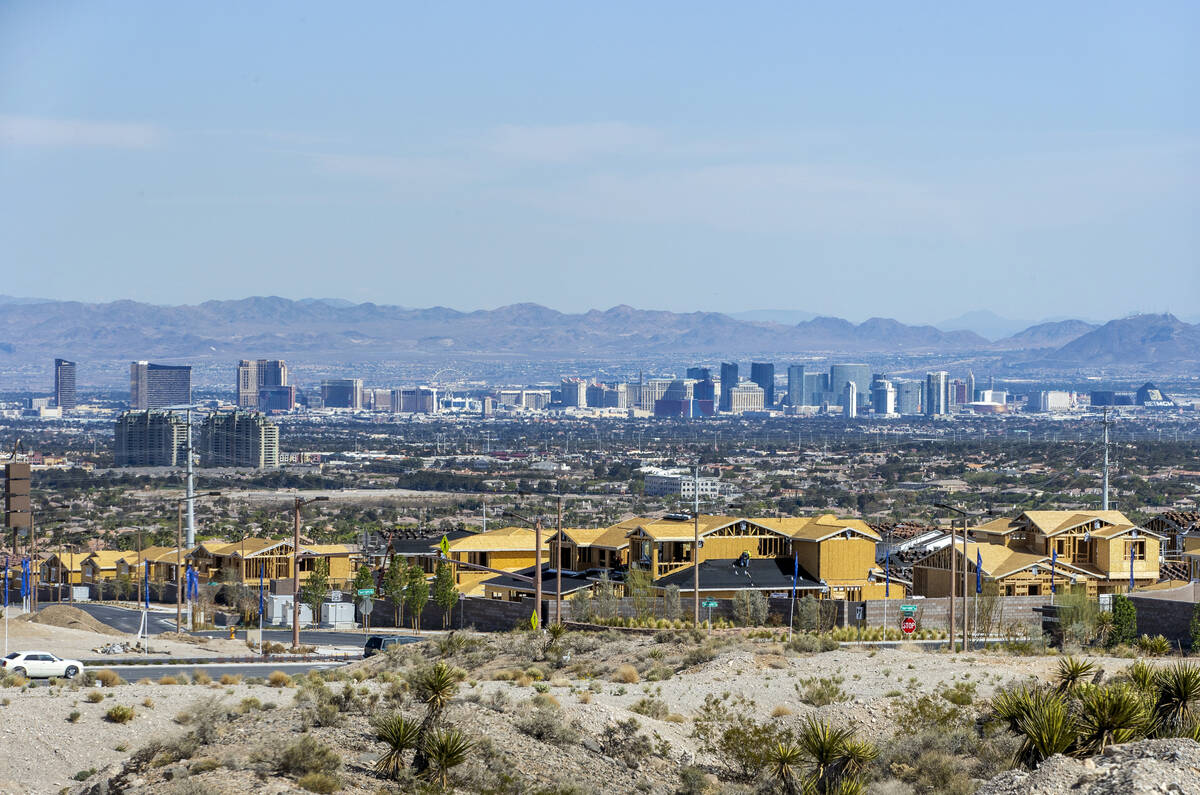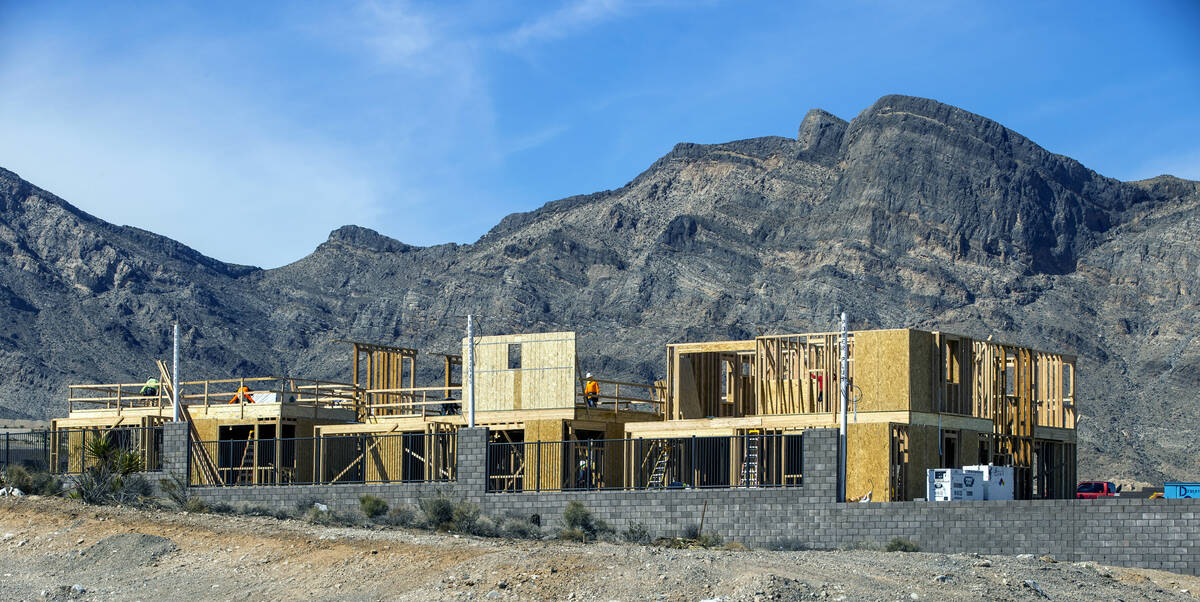Las Vegas’ housing boom sees no end in sight as prices bloom
Southern Nevada house prices started the year rising faster than in other markets around the country, a new report shows, another sign that Las Vegas’ housing boom is nowhere close to ending.
Las Vegas-area home prices in January were up 26.2 percent from the same month last year, compared with a 19.2 percent gain nationally, according to the S&P CoreLogic Case-Shiller index released Tuesday by S&P Dow Jones Indices.
Among the 20 metro areas in the report, Phoenix led the pack with prices skyrocketing 32.6 percent from a year earlier.
This also marked the eighth consecutive month that Las Vegas house prices rose faster than the national average, Case-Shiller data shows.
The findings underscore Southern Nevada’s year-plus residential real estate frenzy of rapid sales, tight inventory and accelerated prices for houses, apartments and land.
Moreover, sales prices are still climbing fast nationally even as rising mortgage rates increase buyers’ borrowing costs, something analysts had predicted could throw some cold water on the market.
‘Irrational market’
America’s unexpected housing boom has been largely fueled by rock-bottom mortgage rates that have let buyers stretch their budgets.
The average rate on a 30-year home loan in February was 3.76 percent, still historically low but up from 2.81 percent the same month last year, according to mortgage-finance giant Freddie Mac.
“Eventually mortgage rates will slow down home prices, but it hasn’t happened so far,” Ken Johnson, an economist at Florida Atlantic University’s College of Business, said in a news release. “We should not see rapid upticks in prices as mortgage rates rise. It’s that kind of exuberance that led to past housing downturns.”
According to Johnson, house hunters “need to pause if their main motivation is to buy because they fear prices will rise even higher.”
“Perhaps staying where you are now and letting this irrational market settle would be one of the best decisions you could make,” he said.
Dan Handy, economic data analyst with listing site Zillow, said in a statement Tuesday that demand remains strong and that the tally of homes for sale continues to fall to record lows.
Sales have remained elevated, but rising mortgage rates, rapidly increasing home values and “fierce competition for listings may have some potential buyers rethinking whether they’re going to take the plunge into the market,” he added.
‘Just not sustainable’
In Las Vegas, the market has remained heated this year after a frenzied 2021.
Buyers last year showered properties with offers and routinely paid over the asking price, and median resale prices rose to new all-time highs practically every month. Builders also put buyers on waiting lists and in some cases drew names to determine who could purchase a place.
Southern Nevada has drawn more out-of-state arrivals than usual during the pandemic amid widespread work-from-home arrangements, as newcomers can often get a bigger home for less money here.
The median sales price of previously owned single-family homes — the bulk of the market — was $450,000 last month, up 26.8 percent, or $95,000, from February 2021, trade association Las Vegas Realtors reported.
“Local home prices can’t keep going up this fast forever,” LVR President Brandon Roberts said in a news release earlier this month. “The increases we’ve been seeing in the last year or so are just not sustainable.”
Homebuyers aren’t the only ones paying a lot more for residential real estate.
Las Vegas Valley residential land sold for an average of about $514,000 per acre last year, up from around $250,900 per acre in 2020, according to figures from brokerage Colliers International.
Also, the typical Las Vegas-area rental rate last month was up 23.3 percent from a year earlier, Zillow data shows, squeezing affordability in a state with a big shortage of low-income housing.
Zillow senior economist Jeff Tucker told the Review-Journal recently that the hottest housing markets during the pandemic have been relatively more affordable and sunnier regions with somewhat newer and larger housing stocks.
Las Vegas fits that bill, though as Tucker noted, cities can become so popular because of their lower prices that their “affordability starts to vanish.”
Contact Eli Segall at esegall@reviewjournal.com or 702-383-0342. Follow @eli_segall on Twitter.



